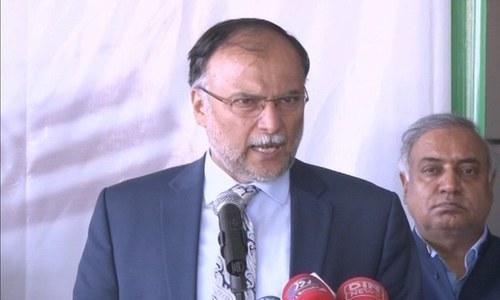ISLAMABAD: A systematic and continuous review of the pre-election process spanning over one year by an independent think tank focused on political and public policy research and legislative strengthening indicates that “the pre-poll process has so far been unfair overall”.
According to the “Pre-Election Assessment Report” released by Pakistan Institute of Legislative Development and Transparency (Pildat) here on Tuesday, the two parameters that have fallen in the highly unfair scale based on the scores received are perception of neutrality of military towards competing political parties and candidates receiving the lowest score of 33.4 per cent, followed by the parameter of perception of freedom of private media from the influence of state institutions and vested interests receiving a score of 37.8pc.
An official of Pildat, when contacted, interpreted the statement as saying that it means that majority of over 60pc of their analysts and members of their organisation believe that the military was not playing a “neutral role” in the electoral process and that the private media was functioning under the influence of “the state institutions and vested interests”.
Pildat analysts believe military is not playing ‘neutral role’ in electoral process and media is functioning under influence of ‘the state institutions and vested interests’
The report was based on the analysis of various incidents that took place in the country between April 2017 and March 2018.
The assessment report with a scorecard on pre-poll fairness perception is based on an 11-point pre-poll fairness framework and has received an overall score of 51.5pc on a scale of 100.
The unfair scale includes perception of neutrality of the state-owned media, which has received the score of 41.5pc, followed by perception of neutrality of the accountability process led by the National Accountability Bureau (NAB) which has received the score of 43.1pc. Perception of independence and neutrality of judiciary also falls in the scale of unfair with score of 45.8pc, says the report.
The parameters that have received the highest scores in terms of providing the required level-playing field to all for a free and fair election relate to the election management body — the Election Commission of Pakistan (ECP) — charged with the constitutional responsibility of holding elections.
Perception of credibility of electoral rolls has received the highest score of 67.3pc. Perception of independence, neutrality and effectiveness of the ECP has received a score of 65.3pc — the second highest ranking parameter.
Another related indicator in the parameter of perception of fairness and adherence to the laws and rules relating to the electoral constituencies’ delimitation process has also received a high score of 64pc with the overall highest third ranking score amongst 11 parameters. It must be noted that these are the only three parameters out of 11 whose scores fall in the “fair” scale.
The parameter of perception of lack of ability of the president and the governors to influence elections received the next highest score of 61.8pc while perception of lack of ability of local governments to influence elections has received a score of 57.8pc.
The parameter of perception of maintenance of law and order to allow political activities on a level-playing field has also received a score of 57.8pc that indicates that compared to the pre-electoral environment leading up to the 2013 general elections where parties were unable to hold public rallies, the scenario has been relatively stable leading up to the 2018 general elections.
No parameter has received score on the “Good (81-100) scale”.
Based on the assessment of perception of fairness of the pre-electoral process, Pildat believes that if the current trend of perception of unfairness continues, the prospects for fairness of the remaining phases of the electoral process will also be jeopardised.
As for methodology, Pildat developed a pre-poll fairness framework consisting of 11 parameters to assess the fairness of the pre-poll phase. It catalogued and carefully reviewed over 70 key developments which took place during the past one year against these 11 parameters. It guided by scoring of members of Pildat Dialogue Group on Civil-Military Relations has evaluated the performance against each parameter and scored its performance. The individual scores are then aggregated to produce the collective score against each parameter.
Published in Dawn, May 30th, 2018














































